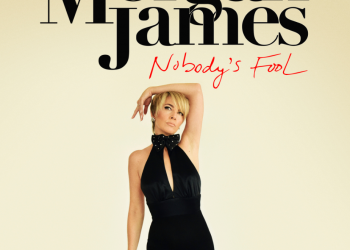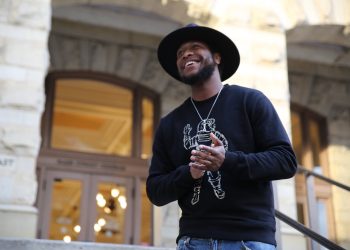Noted producer and recording artist The Dream has never been one to shy away from being bluntly honest but, was his statement that black singers can’t sing “soul anymore” accurate?
Speaking with The Guardian over the weekend, The Dream questioned the admiration Adele (“21”) receives for singing soul versus Beyonce (“4”).
“It’s called rhythm and blues; they just took the blues out of it for so long. What’s crazy is that blacks can’t do soul records any more. We love Adele singing it, but Beyoncé singing it? No,” says The Dream.
So what works for “blacks”? According to The Dream, a club hit.
“No, the tempo’s too slow, gimme the club hit. Now the blacks in America are responsible for the pop records, and everybody else is singing soulful records,” says The Dream. “It’s weird to me. We’re pigeonholed over there.”
So is that really where music stands, at least in the U.S.?
In related news, The Dream is logging studio time with Rita Ora, Bridget Kelly and X Factor’s Tulisa Contostavlos following songs like “1+1, Beyonce” and “Roc, Love IV”
The ‘Dream’ of a better future for African-Americans was once embodied in the music that they created. Soul records were an integral part of this Dream – representing hope and progress, as well as providing much needed solace during tough times. But today, it seems that Blacks will no longer be able to do soul records anymore. This article looks at why this may be so, examining the various factors at play and exploring what needs to change before black musicians can reclaim their rightful place within the genre. From cultural shifts to economic realities, we’ll explore how these issues have made soul records an impossibility for many Black artists – and what steps need to be taken if they are ever going to make a comeback.
History Of Soul Music In The African American Community
The soul genre of music is a sound that has been deeply embedded in the African American community for centuries. It’s a reflection of how black people have experienced life, with its blend of joy and sorrow, hope and despair. Soul music emerged from gospel traditions, combining elements of rhythm and blues (R&B), jazz, funk and pop to create a unique sound. As such, it became an essential part of African American culture; many black artists found success as solo artists or groups performing this vibrant style of music.
Throughout history, soul music has evolved significantly while still maintaining its core characteristics – heartfelt lyrics that speak to the listener’s experiences and emotions over upbeat musical arrangements. During its heyday in the 1950s through the 1970s, countless highly successful songs were produced by both prominent musicians like Aretha Franklin and lesser-known acts alike. Later on, genres like hip hop would bring further changes to R&B/Soul sounds but much stayed the same: powerful vocals backed up by strong bass lines and drums provided a thrilling listening experience regardless of era.
More recently however, there has been an alarming trend towards what some are calling ‘post-soul’ – a kind of tamer take on modern R&B/Soul which lacks the rawness those within the African American community know so well. This new form is often criticized for dampening down the spirit of traditional soul records leaving listeners feeling unfulfilled compared to their predecessors. The dream then becomes whether blacks can continue to do justice to soul records without losing touch with their roots amidst increasingly commercialized production styles?
Reasons For Decreasing Representation Of Black Artists In Soul Music
The dream of whether African Americans can continue to do justice to soul records has become a pressing issue in the music industry, as black representation in this genre is decreasing. There are a number of factors that have contributed to this decline, ranging from structural inequalities and limited access to resources, to cultural shifts away from traditional sounds and increasing commercialization of production styles.
For starters, much like other industries, systemic racism continues to impede opportunities for people of color within the music business. Even though there are more channels available than ever before, many artists struggle to get noticed due to lack of resources and connections which often prevents them from breaking into the mainstream. In addition, some argue that modern trends towards electronic instruments and auto-tune technologies have led listeners away from more authentic interpretations of R&B/Soul songs leaving fewer spaces for black artist’s voices.
Finally, with record labels increasingly focused on revenue streams over artistic expression it’s easy for traditional soul records – an inherently risky venture – to be overlooked or even disregarded entirely. This has caused many young Black musicians who aspire to create soulful tunes feel they must adapt their sound in order appeal to wider audiences or risk not being heard at all; thereby leading us back toward ‘post-soul’ productions which don’t reflect true African American culture as well.
Conclusion
I. Conclusion
In conclusion, the dream of black artists being able to create and perform soul music is fading away as other genres dominate the charts. This shift in focus represents a significant change from when soul music was created and celebrated by African American communities around the world. While there are still some black musicians releasing soul records today, they often struggle to receive recognition for their work due to lack of support from mainstream media outlets. Although the current state of affairs may seem disheartening, it’s important to remember that this isn’t an insurmountable situation; with increased awareness and advocacy, we can revive the legacy of soul music and ensure its place in our cultural heritage for generations to come.
II. Reflection
As someone who grew up listening to classic soul records, I find myself reflecting on how quickly these sounds have become relegated to nostalgia status instead of forming part of what’s currently popular or commercially successful. It’s both saddening and inspiring at the same time – while I lament over what has been lost, I’m also motivated to continue advocating for equitable representation within the music industry so that future generations won’t miss out on experiencing such incredible artistry again.
III. Call To Action
If you feel similarly about this issue, join me in taking positive action towards restoring visibility for Black artists within all genres – not just soul music but across them all – because everybody should have access to opportunities where they can express themselves freely without fear or judgement! Let us keep pushing forward together until everyone is given a fair chance at creating beautiful works of art no matter their background or identity.








